Top 10 Women in Government and Public Service Shaping South Africa
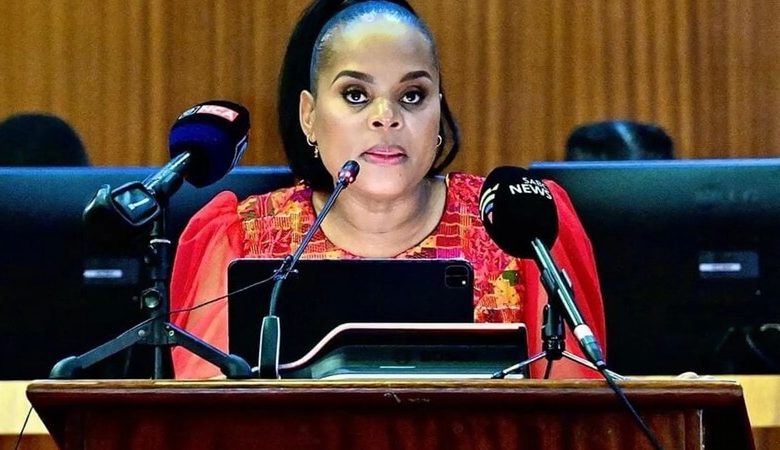
Women’s Month is a time to acknowledge and celebrate the achievements of women who have made significant contributions across various sectors. In South Africa, this month holds special importance as it pays tribute to the role women have played in shaping the nation. Women’s leadership in government and public service has brought about remarkable social change, policy innovations, and national development. As we reflect on Women’s Month, it’s crucial to recognize the pivotal role female leaders play in guiding the country’s future.
South Africa’s public service and government sector is vast, encompassing local, provincial, and national levels, alongside key government agencies and public enterprises. Women’s leadership in this sector not only enhances governance but also ensures that policies are more inclusive, equitable, and beneficial to all. Female leaders influence national policies on health, education, safety, economic growth, and much more, reinforcing the importance of women in these positions for effective leadership and sustainable development.
Women’s leadership in government has a profound impact on national policies. It creates inclusive and well-rounded governance systems that benefit all sectors of society, while also encouraging social change. By acknowledging and elevating women in government, South Africa is paving the way for greater inclusivity and long-term progress.
Historical Progress of Women in Politics and Civil Service
Women have played an instrumental role in the political and civil service landscape of South Africa. Historically, the road to public service leadership for women was riddled with challenges, yet their perseverance has paved the way for greater inclusion. With the end of apartheid, significant strides were made to promote gender equality in government roles, ensuring that women’s voices were heard at all levels of governance.
Representation of women in government not only enhances the diversity of perspectives but also allows for policies that address the specific needs of women, children, and marginalized communities. As of 2024, women make up a significant portion of South Africa’s cabinet, which is a testament to the evolving role of women in public service. They are key players in shaping national strategies on economic development, poverty alleviation, health reforms, and education.
Importance of Representation in Policymaking and Governance
The importance of women’s representation in policymaking cannot be overstated. When women hold leadership positions, the policies crafted are often more inclusive, addressing not only the needs of the general population but also those of women, children, and marginalized communities. Female leaders are instrumental in ensuring that social justice, gender equality, and community development remain central themes in governance.
Women also serve as key decision-makers in various sectors, including national government, local governance, and public administration. Their contributions extend to policy development, diplomacy, and economic governance, where they champion reforms that are pivotal to national growth and stability.
Criteria for Selecting the Top 10 Women
Leadership Roles and Impact
The women included in this list have earned their place through impactful roles, dedication, and transformative contributions. The criteria for selection include:
- Leadership Roles: Holding prominent positions such as Ministers, Director-Generals, or CEOs of state entities.
- Impact on Communities: Their work significantly contributes to social, economic, and policy changes benefiting South African communities.
- Recognition and Achievements: National and international awards, recognitions, and accolades for their leadership and service.
- Shaping Policy and Innovation: Influencing public policies, creating innovative approaches to governance, and enhancing public service delivery.
These criteria reflect the significant contributions these women have made in public service, as well as their leadership in national development.
Profiles of the Top 10 Women
1. Hon. MEC Kedibone Diale-Tlabela – MEC for Roads and Transport, Gauteng

- Background: A leader committed to improving transportation infrastructure in Gauteng.
- Key Achievements: Oversaw large-scale road safety campaigns and major transport infrastructure projects.
- Quote: “Better roads, better lives.”
- Impact: Enhanced accessibility and mobility across the province, benefiting commuters and local businesses.
2. Beke Moloi – General Manager, Learning & Development, Eskom
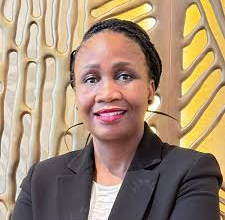
- Background: Beke Moloi has led Eskom’s workforce development programs to improve service delivery.
- Key Achievements: Strengthened skills development and leadership training programs.
- Quote: “Every employee is a cornerstone of success.”
- Impact: Elevated Eskom’s performance through strategic investments in employee development and training.
3. Zukiswa Mqolomba – Deputy Chairperson, Public Service Commission
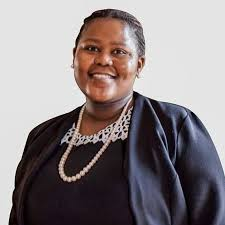
- Background: A strong advocate for gender equality and improved representation of women in senior civil service roles.
- Key Achievements: Led initiatives to institutionalize women’s networks and promote culture change within government.
- Quote: “We must create spaces where women’s contributions in leadership are valued and recognized.”
- Impact: Played a crucial role in driving culture change in government, ensuring that women are empowered and their contributions acknowledged at all levels of public service.
4. Chantal Gomes – MMC Public Safety & Roads, Midvaal Local Municipality

- Background: Focused on public safety and road safety in Midvaal.
- Key Achievements: Oversaw public safety initiatives and infrastructure projects.
- Quote: “Safety is not just a priority—it’s a responsibility.”
- Impact: Improved safety measures for Midvaal residents, reducing crime and accidents.
5. Lt Gen Khosi Senthumule – Divisional Commissioner Detective and Forensic Services, SAPS
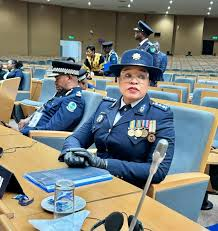
- Background: Senior officer in forensic services, leading investigative efforts to combat crime.
- Key Achievements: Developed advanced forensic and detective services, enhancing crime solving.
- Quote: “We stand for justice, no matter the cost.”
- Impact: Enhanced forensic services, helping solve complex crimes and ensuring justice for victims.
6. Nozipho Booi – Chief Director, Economic Development & Tourism, Eastern Cape

- Background: A leader in economic development, driving growth in the tourism sector.
- Key Achievements: Stimulated economic growth and job creation in the Eastern Cape.
- Quote: “Economic empowerment paves the way for lasting change.”
- Impact: Contributed to sustainable economic growth and tourism expansion in the Eastern Cape.
7. Ugeshni Naidoo – Senior Manager: Community Safety, SALGA

- Background: Works towards enhancing local government safety measures.
- Key Achievements: Advocated for better public safety systems in municipalities.
- Quote: “Every community deserves to feel safe and secure.”
- Impact: Influenced public safety reforms in local governments, ensuring more secure communities.
8. Buhle Makhanya – Industrial Psychologist Senior Manager, eThekwini Municipality

- Background: Focused on workforce management and psychological well-being in public service.
- Key Achievements: Enhanced staff development and engagement strategies within the municipality.
- Quote: “A motivated workforce is key to effective governance.”
- Impact: Improved public service delivery by strengthening the workforce’s capabilities.
9. Pfumelani Mbulayeni – Managing Director, PM Aviation
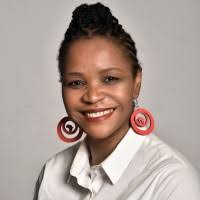
- Background: Leader in aviation management, overseeing operations and safety protocols.
- Key Achievements: Ensured the highest standards in aviation safety and service delivery.
- Quote: “Safety and efficiency are the pillars of aviation.”
- Impact: Made aviation services in South Africa safer and more efficient, improving connectivity.
10. Phophi Ramathuba – Premier of Limpopo
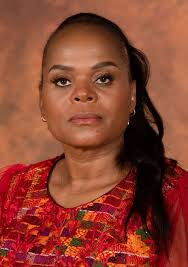
- Background: First woman Premier of Limpopo, previously MEC for Health.
- Key Achievements: Focused on healthcare, economic growth, and poverty alleviation in Limpopo.
- Quote: “Leadership is about creating opportunities for others to grow.”
- Impact: Led inclusive development initiatives and improved healthcare services in Limpopo.
Challenges Faced by Women in Government & Public Service
Gender Bias and Barriers in Leadership
Despite progress, women in government and public service face significant challenges, including gender bias and barriers to leadership. Cultural perceptions about gender roles often hinder women’s rise to top leadership positions, resulting in fewer women in decision-making spaces.
Balancing Work, Public Scrutiny, and Personal Life
Another challenge faced by women leaders is balancing the demands of public scrutiny and their personal lives. The pressure to maintain a public image while managing personal responsibilities is a constant balancing act.
Overcoming Challenges
However, many women in public service have developed strategies to overcome these obstacles. Supportive networks, mentorship programs, and gender-focused initiatives are crucial in enabling women to succeed in high-level leadership positions.
The Impact of Female Leadership in Government
Policy Innovations and Community Development
Female leadership in government has led to various policy innovations and community development initiatives. For instance, female leaders have been central to advancing gender equality, healthcare access, and social justice policies. These innovations contribute to a more inclusive society, where all citizens have an equal opportunity to thrive.
Encouraging More Young Women to Pursue Public Service
By excelling in leadership roles, these women serve as role models for the next generation. Their achievements inspire young women to pursue careers in public service, ensuring that women’s contributions to governance continue to grow.
Role Models for Leadership in South Africa
The women featured in this article are prime examples of leadership in action. They prove that women not only belong in leadership roles but that they are essential to the future of South Africa.
How to Pursue a Career in Government & Public Service
Education & Qualifications
To pursue a career in government and public service, it is essential to obtain the right qualifications. Degrees in political science, public administration, or law are a good foundation for a career in governance.
Entry-Level Pathways
Internships, graduate programs, and learnerships offer excellent entry points into the public service sector. These pathways allow young professionals to gain the skills and experience needed to rise to leadership positions.
Networking and Mentorship
Networking and mentorship are crucial for success in public service. Establishing connections with senior public servants and leaders can provide guidance and open doors to new opportunities.
Links to SETAs or Bursaries
Various SETAs (Sector Education and Training Authorities) and bursary programs offer support for individuals pursuing careers in public service. These resources can help alleviate financial barriers to education and training.
Check also: Top 10 Women in Media, Entertainment, and Creative Arts in South Africa
As we celebrate Women’s Month, it’s important to acknowledge the significant contributions of female leaders in government and public service. Their work in shaping South Africa’s policies and social development is crucial to building a more inclusive, prosperous nation. Let us continue to support and encourage women in leadership, following their example as they pave the way for future generations.


